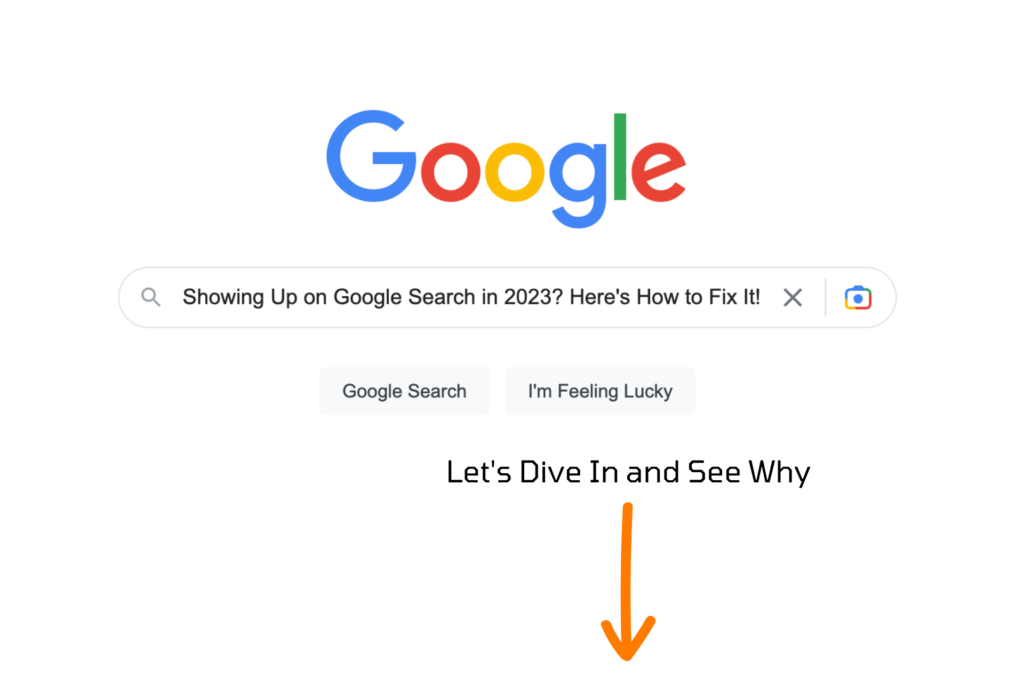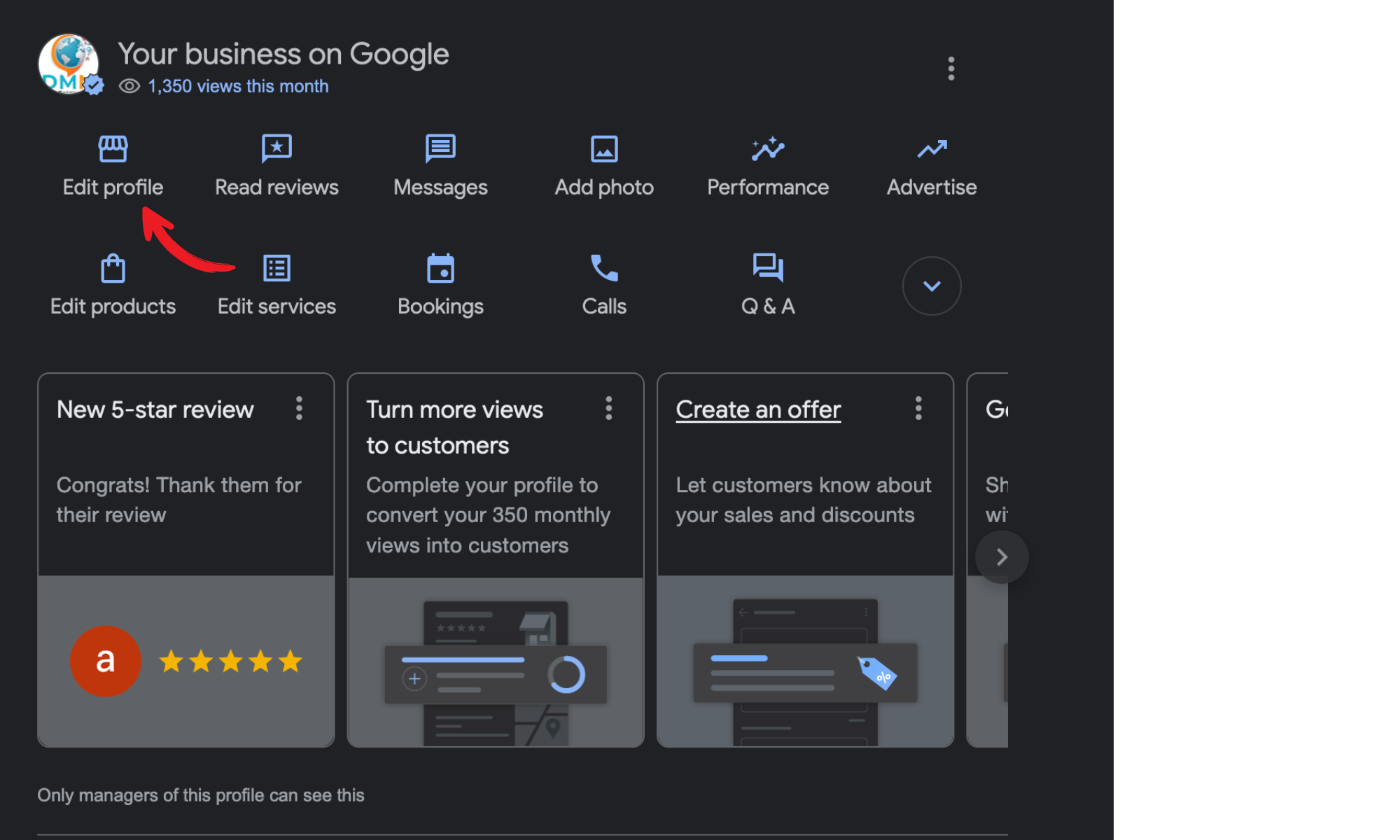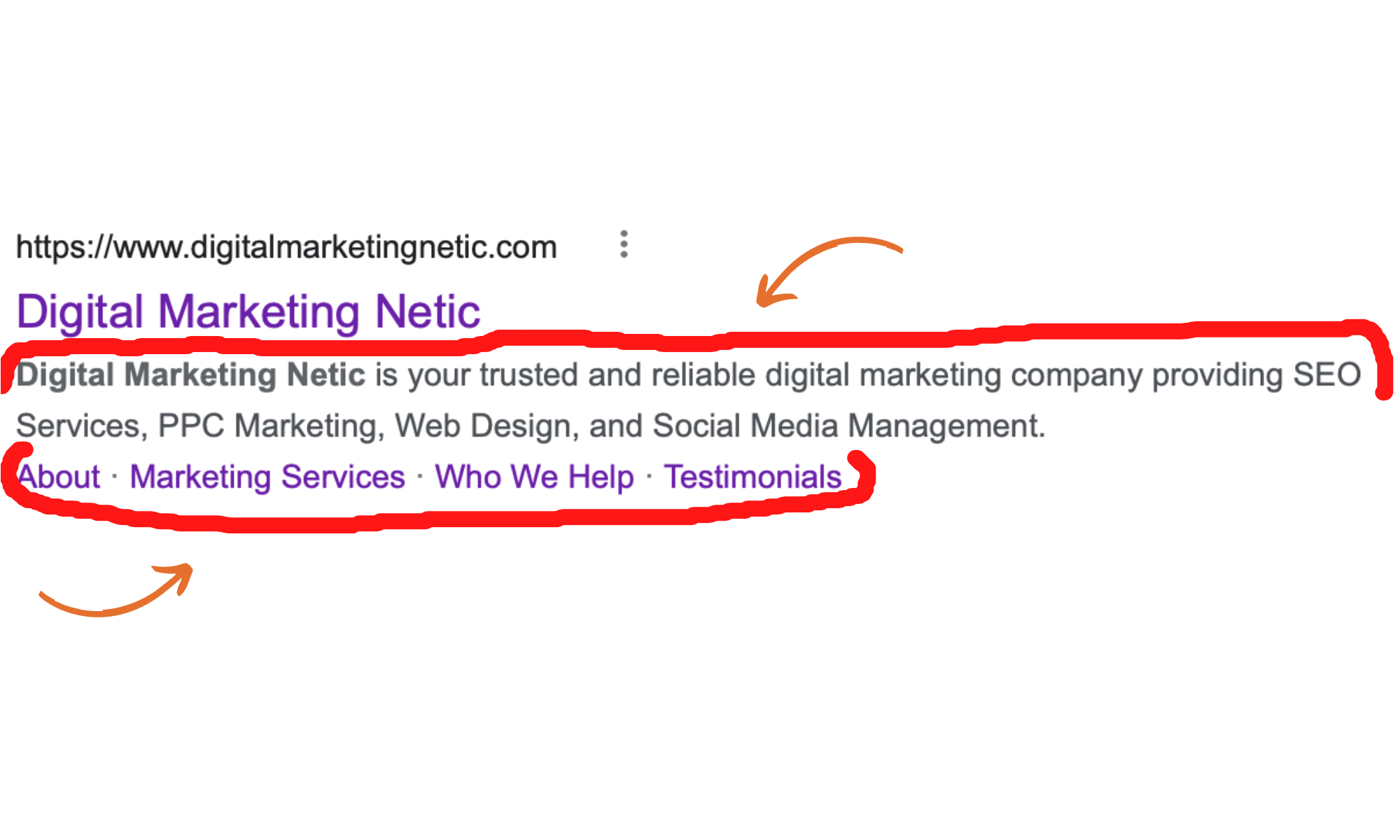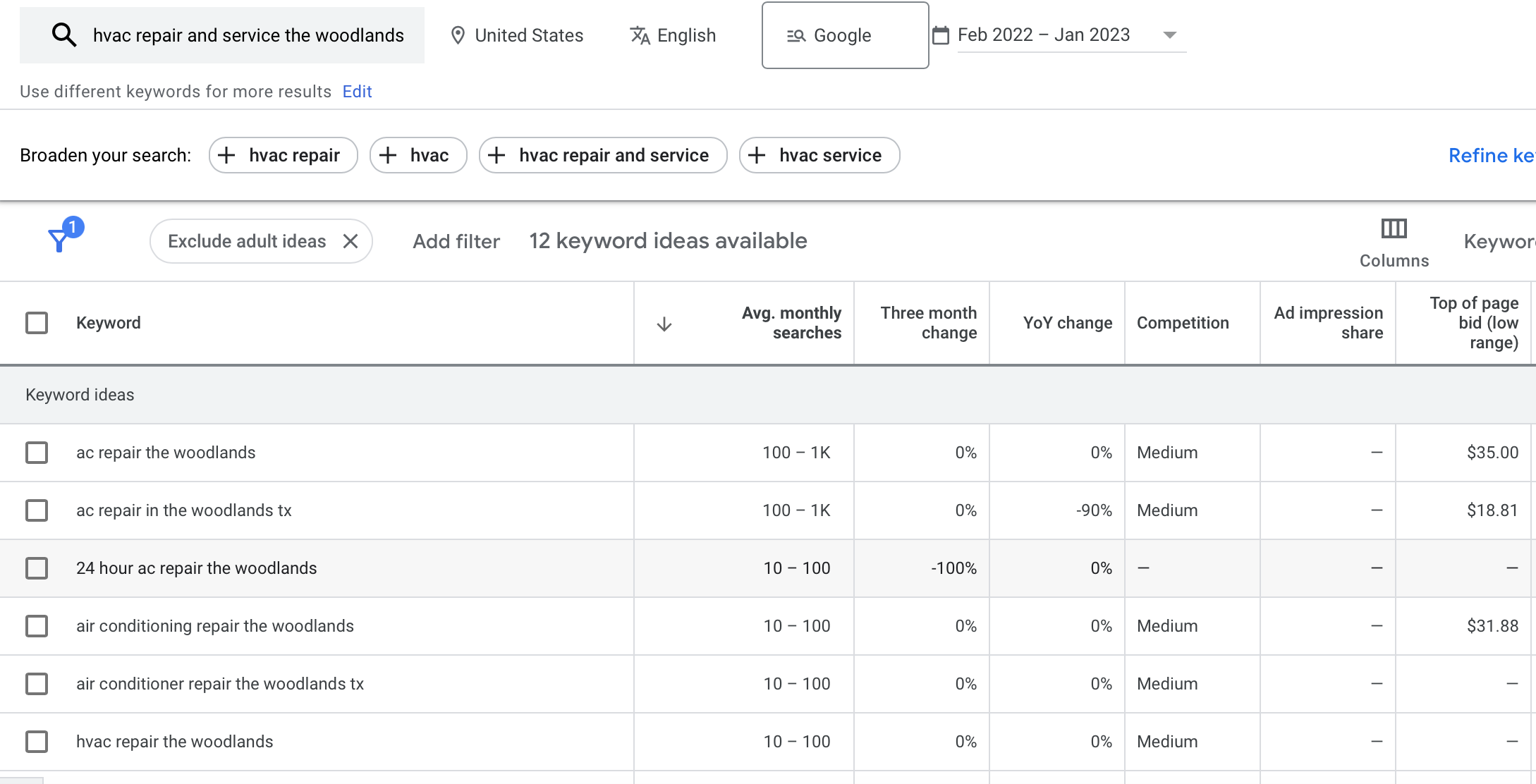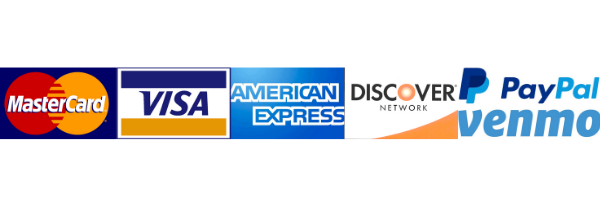Why Is My Business Not Coming Up on Google Search?
Do you ever wonder Why Is My Business Not Coming Up on Google Search? It’s a frustrating experience, especially when you know that potential customers are searching for businesses like yours. You need to make sure your business is optimized and visible so people can find it easily online. To help with this issue, here are five tips that will increase the chances of “Why Is My Business Not Coming Up on Google Search” appearing in search engine results: checking your Google My Business listing, optimizing website SEO, using local keywords strategically, building quality backlinks, and monitoring rankings. With these steps implemented correctly, there’s no reason “why my business not coming up on google searches” won’t be seen.
Table of Contents:
- Check Your Google My Business Listing
- Optimize Your Website for SEO
- Use Local Keywords
- Build Quality Backlinks
- Monitor Your Rankings
- FAQs about Why is My Business Not Coming Up on Google Search
- Conclusion
Check Your Google My Business Listing
Having an accurate and up-to-date Google My Business listing now called Google Business Profile and Google Maps is essential for local small businesses. It helps potential customers find your business information online through local search results, provides them with important business information about your services, and allows you to interact with them directly.
To ensure that your listing is correct, start by checking the basics such as a business address, phone number, website URL, and opening hours. Make sure all of this information is accurate and consistent across other websites like Yelp or Yellow Pages. If any of these details are incorrect or outdated it could lead to confusion among customers who may not be able to contact you easily or visit at the right time.
Next check if there are any reviews associated with your business on Google My Business. Reviews can have a huge impact on how potential customers perceive your business so make sure they’re positive. Responding to reviews promptly also shows that you care about customer feedback which can help build trust in your brand.
Finally, take some time to update the photos associated with your listing on Google My Business too. This will give potential customers an insight into what kind of service they can expect from you before they even visit. Photos should be high quality and relevant; think images of staff members working hard behind the scenes or happy clients enjoying their experience at one of your events/venues etc. This will help create a more personal connection between you and prospective customers before they even reach out.
Ensuring that your Google My Business listing is up to date and optimized with local SEO services which will help with local search results and search engine optimization will help you be found on local searches. Now, let’s take a look at how to optimize your website for SEO.
1. Optimize Your Website for SEO
Search engine optimization (SEO) is essential for local SEO for small businesses to be found online. Optimizing your website can help you drive more customers and website traffic. Here are some tips on how to optimize your website for SEO:
1. Use Relevant Keywords in Titles and Meta Descriptions: Using relevant keywords in titles and meta descriptions help search engines understand what the page is about, making it easier for them to index it correctly. Additionally, including keywords in these areas will make your page appear higher up in search results when users type those terms into a search engine.
Adding alt tags to images on your site provides additional information about the image that can be read by search engines, helping them better understand the content of the page as well as improving accessibility for visually impaired visitors who rely on screen readers or other assistive technologies. This is an important step in optimizing your website for SEO and should not be overlooked.
2. Create Internal Links Between Pages:
Creating internal links between pages on your site allows visitors to navigate easily from one part of your site to another while also providing an opportunity for you to pass link equity between pages which can help improve their rankings within search engine results pages (SERPs).
Search engines prefer websites that regularly update their content, as this indicates that they are actively maintained and have fresh information available for users looking for answers or solutions related to their query topics. Therefore, it is important to ensure that existing content is updated regularly and new posts are added whenever possible.
Optimizing your website for SEO can help ensure that your business is visible on search engines and attract more customers. Now, let’s take a look at how to use local keywords to further boost visibility.
3. Use Local Keywords
Local keywords are an essential part of optimizing your website for local search engine results. By including relevant phrases in your content, you can help ensure that your business appears higher in the rankings when someone searches for services or products related to what you offer.
When creating content for a local audience, it’s important to use language that is specific to the area where you operate. For example, if you are a real estate agent based in San Francisco, using phrases like “San Francisco real estate” or “homes for sale in San Francisco” throughout your website will help make sure that people searching locally find you first. Additionally, using words like “neighborhoods” and other terms associated with the area can also be beneficial.
It’s also important to consider variations on these terms as well; instead of just focusing on “real estate,” try adding adjectives such as “luxury” or “affordable.” This will help broaden the scope of potential customers who may find and visit your site. Additionally, by including location-specific information about neighborhoods and areas within cities (e.g., Mission District), this can further narrow down potential customers who are performing local searches and are looking specifically for those types of properties or services within certain areas.
Including local keywords doesn’t just apply to written content either; images should be tagged with appropriate titles and descriptions so they appear more prominently when searched online too. Furthermore, don’t forget about meta tags – these snippets provide additional information about pages which helps them rank better in search engine results pages (SERPs). When writing meta tags include both general terms related to what type of service/product is offered as well as location-specific ones too.
Finally, keep track of how effective different keyword combinations are at driving traffic by monitoring analytics data from time to time. This way you’ll know which ones work best so that future content creation efforts can focus on those particular phrases rather than wasting time trying out new ones without any tangible results.
Using local keywords in your content and website will help you to rank higher on Google searches for the area you serve, making it easier for potential customers to find you. Building quality backlinks is another important step that can help boost your visibility online.
4. Build Quality Backlinks
Backlinks are an important factor in SEO, as they help search engines determine the quality and relevance of a website. When other websites link to yours, it signals to search engines that your content is valuable and worth ranking higher on SERPs.
Building quality backlinks can be done in several ways. One way is by guest blogging on other websites or blogs related to your industry. This will not only give you exposure but also create backlinks from those sites pointing to yours. You can also get featured on industry-related websites and blogs which will generate more links for your site.
Another way of building backlinks is through social media platforms such as Twitter, Facebook, and Instagram. By sharing content with relevant hashtags on these platforms, you can increase visibility and attract potential customers who may then link to your website if they find it useful or interesting enough.
You should also consider submitting press releases about new products or services offered by your business as this could lead to more people linking back to your website when writing about them online. Additionally, participating in forums related to the topics discussed on your website might result in some users linking back if they found what you had said helpful or insightful enough for their purposes.
Finally, creating high-quality content that adds value for readers is another great way of earning natural links from other websites without having to ask them directly for one. Therefore, it is important to ensure that whatever you post has been thoroughly researched and well-written.
Building quality backlinks is an important step to ensuring your business is visible online. Monitor your rankings regularly to ensure you are staying ahead of the competition and making progress toward achieving your goals.
5. Monitor Your Rankings
Monitoring your rankings on SERPs is an important part of any SEO strategy. It helps you identify issues and make adjustments accordingly. Google Search Console and Ahrefs are two great tools for tracking how well your website is performing in organic search results over time.
Google Search Console provides data about the performance of individual pages, such as impressions, clicks, and average position in the SERP. This information can be used to determine which keywords are driving traffic to your site and which ones need more attention. Additionally, it can help you spot any technical issues that may be affecting your ranking or visibility on the web.
Ahrefs offers a comprehensive suite of tools for monitoring keyword rankings across different search engines like Google, Bing, Yahoo., Baidu, etc., including detailed reports with insights into what’s working (or not) about SEO efforts. With its powerful backlink analysis feature, you can also keep track of who’s linking to your content and get notified when new links appear so that you can take action if necessary.
It’s important to remember that tracking keyword rankings isn’t just about seeing where you rank today – it’s also about understanding trends over time so that you can determine if the changes made have had a positive effect on overall performance. Regularly monitoring these metrics will give you valuable insight into how effective your SEO strategies are at helping people find your business online.
FAQs about Why is My Business Not Coming Up on Google Search
Why doesn’t Google search show my business?
Google search results are based on a variety of factors, including the relevance and quality of content on your website. If your business is not appearing in Google search results, it could be due to several reasons such as inadequate or outdated SEO practices; low-quality content; lack of backlinks from other websites; incorrect local listings; or insufficient online presence. To ensure that your business appears in Google local search results, make sure you have an up-to-date website with relevant content optimized for SEO. Additionally, create profiles on social media platforms and other directories to increase visibility online.
How do I get my business location to show up on Google searches?
To get your business to show up on Google search, you need to optimize your website for SEO (Search Engine Optimization). This involves creating content that is relevant and keyword-rich, as well as making sure the technical aspects of your website are optimized. Additionally, it’s important to create backlinks from other websites and directories to increase visibility. Finally, regularly updating content with fresh information can help ensure that Google continues to recognize your site as a valuable resource. With these steps taken, you should be able to improve the chances of appearing higher on search engine results pages.
How long does it take for my business to show up on Google search?
It typically takes 4-6 weeks for a website to be indexed and show up in Google search results. This time frame can vary depending on the complexity of your website, the number of pages it contains, and how quickly you submit an XML sitemap to Google Search Console. Additionally, SEO efforts such as optimizing content with relevant keywords will help improve visibility and ranking within search engine results pages (SERPs). Ultimately, the more effort you put into optimizing your website for search engines, the quicker it will show up in Google search results.
Conclusion
In conclusion, if your business is not coming up on Google searches, there are a few steps you can take to improve your visibility. Start by checking and optimizing your Google My Business listing with local keywords that accurately reflect the services you offer. Then focus on website SEO optimization and building quality backlinks to increase traffic to your site. Finally, monitor your rankings regularly so that you can adjust any changes as needed. With these tips in mind, you should be able to get more eyes on my business not coming up on google searches.

